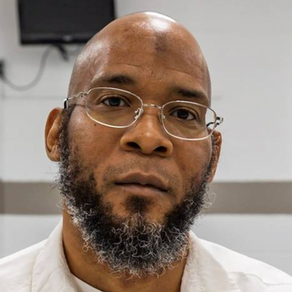top of page

Active cases
For a list of scheduled executions, go to
on death row
WITH STRONG CLAIMS OF
INNOCENCE
EXECUTEd
INNOCENt
Posthumous Declarations of Innocence
(Case descriptions deathpenaltyinfo.org)
“Martinsville 7” - Francis DeSales Grayson, Frank Hairston Jr., Howard Hairston, James Luther Hairston, Joe Henry Hampton, Booker T. Millner, and John Clabon Taylor
“Groveland Four” - Charles Greenlee, Ernest Thomas, Walter Irvin, and Samuel Shepherd
Thomas Griffin & Meeks Griffin
Lena Baker
Henry Tameleo & Louis Greco
William Jackson
John Snowden
Executed with Strong Claims of Innocence
(Case descriptions deathpenaltyinfo.org)
Carlos DeLuna (Texas, convicted 1983, executed 1989)
Ruben Cantu (Texas, convicted 1985, executed 1993)
Larry Griffin (Missouri, convicted 1981, executed 1995)
Joseph O’Dell (Virginia, convicted 1986, executed 1997)
David Spence (Texas, convicted 1984, executed 1997)
Leo Jones (Florida, convicted 1981, executed 1998)
Gary Graham (Texas, convicted 1981, executed 2000)
Claude Jones (Texas, convicted 1989, executed 2000)
Cameron Todd Willingham (Texas, convicted 1992, executed 2004)
Sedley Alley (Tennessee, convicted 1987, executed 2006)
Troy Davis (Georgia, convicted 1991, executed 2011)
Lester Bower (Texas, convicted 1984, executed 2015)
Brian Terrell (Georgia, convicted 1995, executed 2015)
Richard Masterson (Texas, convicted 2002, executed 2016)
Robert Pruett (Texas, convicted 2002, executed 2017)
Carlton Michael Gary (Georgia, convicted 1986, executed 2018)
Domineque Ray (Alabama, convicted 1999; executed 2019)
Larry Swearingen (Texas, convicted 2000, executed 2019)
Walter Barton (Missouri, convicted 1993, executed 2020)
Nathaniel Woods (Alabama, convicted 2005, executed 2020)
Marcellus "Khaliifah" Williams (Missouri, convicted 2000, executed 2024)
bottom of page

































